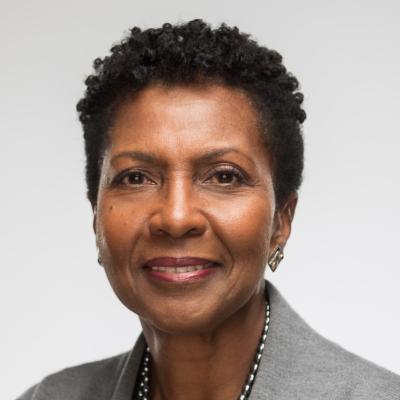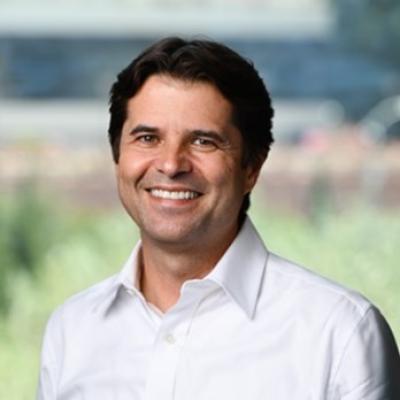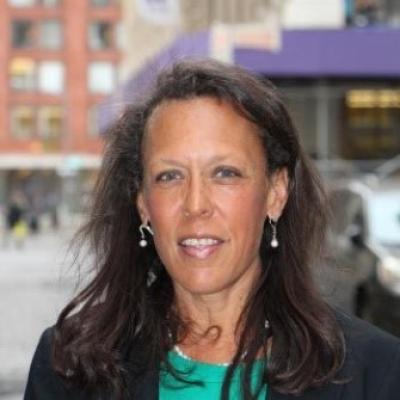Meet the Organizers
About the Co-Organizers

Vonnie C. McLoyd, SRCD President
Ewart A.C. Thomas Collegiate Professor, Department of Psychology, University of Michigan
Vonnie C. McLoyd is the Ewart A. C. Thomas Collegiate Professor of Psychology at the University of Michigan. Her research focuses on parental behavior and family relations (a) as paths through which poverty and economic stress influence youth’s socioemotional adjustment and (b) as processes that protect youth from, or increase youth’s vulnerability to, experiences that threaten socioemotional adjustment (e.g., neighborhood violence, peer victimization, racial discrimination). She also studies correlates of parental racial socialization and how stress, cultural factors, and social support shape parenting in African American families. McLoyd directed the Training Program in Research on Black Child Development at the University of North Carolina and is former Co-Director of the Developmental Psychology Training Program on Context and Human Neurobiology at the University of Michigan, both funded by NICHD. She was a member of two National Academy of Sciences consensus committees—“Building an Agenda to Reduce the Number of Children in Poverty by Half in 10 Years” and “Reducing Intergenerational Poverty.” She is former President of the Society for Research on Adolescence, a member of the National Academy of Sciences and the American Academy of Arts and Sciences, and a fellow in the Association for Psychological Science and the American Psychological Association. Her research has been supported by NIMH, NICHD, the William T. Grant Foundation, the MacArthur Foundation, the Rockefeller Foundation, the Ford Foundation, and the Spencer Foundation. McLoyd received her Ph.D. in Developmental Psychology from the University of Michigan and postdoctoral training at Stanford University.

Andrew J. Fuligni, Program Co-Chair
University of California, Los Angeles , Professor of Psychiatry & Psychology
Andrew J. Fuligni, Ph.D. is a Professor in the Department of Psychiatry and Biobehavioral Sciences and the Department of Psychology at UCLA. He also is a Senior Scientist in the Semel Institute for Neuroscience and Human Behavior. His research focuses on the interaction between sociocultural experiences and biobehavioral development among diverse adolescents, with a current focus on youth's prosocial behavior, contributions to their social worlds, and sleep. As the Co-Director of the UCLA Center for the Developing Adolescent, he works to translate and disseminate the science of adolescence to policy-makers and practitioners to support efforts that promote the health development of diverse youth. Receiving his Ph.D. in Developmental Psychology at the University of Michigan, he was a recipient of the American Psychological Association's Boyd McCandless Award for Early Career Contribution to Developmental Psychology, a William T. Grant Faculty Scholars Award, a FIRST award from NICHD, and he is a Fellow in the American Psychological Association and the Association for Psychological Science.
| Adolescent Development Lab at UCLA | UCLA Center for the Developing Adolescent |

Diane Hughes, Program Co-Chair
New York University, Professor of Applied Psychology/Program Director, Psychology and Social Intervention
Diane Hughes is Professor of Applied Psychology within the Steinhardt School at New York University. Dr. Hughes has written extensively about the role that race and ethnicity play in the lives of adolescents and their families. Topics that she studies include experienced discrimination, racial stereotypes, racial socialization, and ethnic identity across ethnically and racially diverse samples of adolescents as well as factors that shape academic engagement and achievement. Currently, she and her students have several projects focused on youths' representations of structural inequalities and on teachers' and students' experiences with racism in schools. With funding from the Spencer Foundation, we developed a public-facing website with resources and tools for school personnel, parents, and students to promote anti-racist, equitable, and inclusive schools. Hughes also conducts local and national workshops for parents and community members on having conversations about race with children. Hughes received her B.A. in psychology and African American studies from Williams College and her Ph.D. in community and developmental psychology from the University of Michigan. She is former chair of the MacArthur Midlife Network’s subcommittee on Ethnic Diversity in Urban Contexts and former Chair of the Cross-university Study Group on Race, Culture, and Ethnicity. Her research has been funded by the Carnegie Corporation of New York, the John D. and Catherine T. MacArthur Foundation, the William T. Grant Foundation, the National Science Foundation and the National Institute for Child Health and Human Development, and the Spencer Foundation.
| More about Dr. Hughes | Visit her website |
